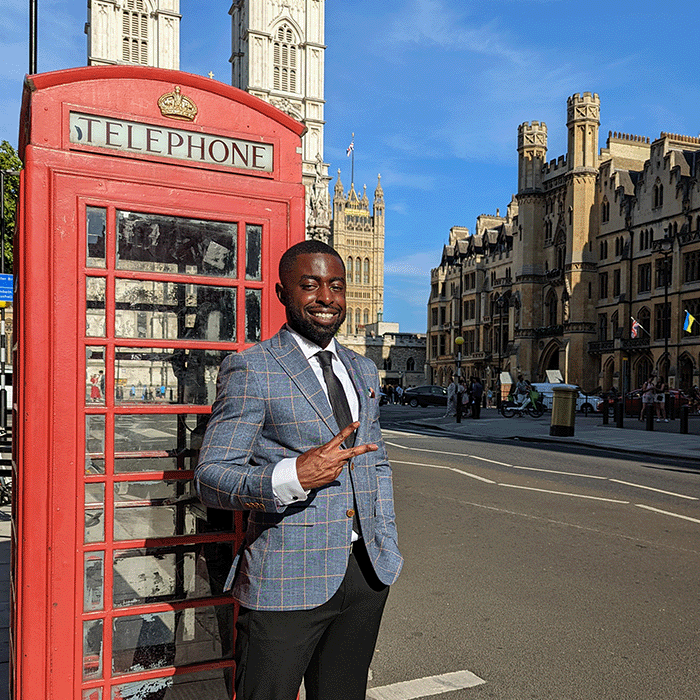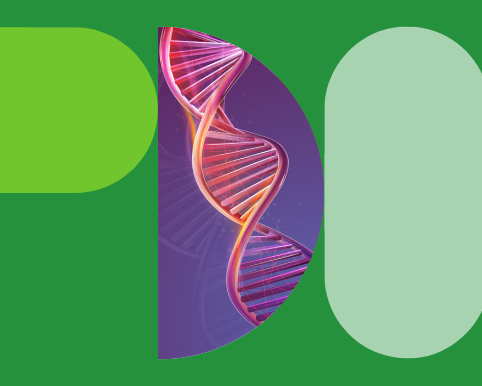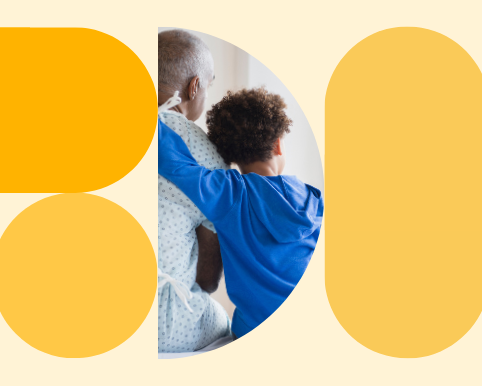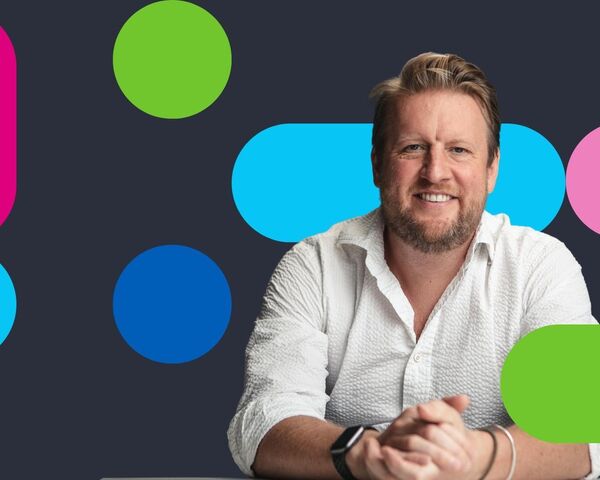Reflections on an internship as a health data scientist
By Samuel Badru on
Samuel Badru, an intern on HDR UK’s Black Internship Programme – which aims to help talented Black health data scientists in the UK flourish in STEM (Science, Technology, Engineering and Mathematics) careers – puts his experience with Genomics England under the microscope and shares what advice he would like to pass on to future interns.
What motivated you to be part of our internship programme?
Being a data scientist intern has been a unique experience. In terms of why I was motivated to apply, my background and interests aligned well with the skills and experience I could gain.
I have a BSc in Biomedical Sciences from The University of Manchester, as well as a MSc in the Molecular Biology & Pathology of Viruses from Imperial College London - both of which concluded in Bioinformatics projects. I then spent some time at Imperial in the lab working on COVID-19.
Whilst I enjoyed aspects of my work, I realised that I wasn’t quite as passionate about learning wet-lab skills as I was about learning to code and statistics. That’s when I decided to make the pivot, and HDR UK’s black internship programme was an amazing opportunity to help me apply this knowledge. I was particularly happy that it wasn’t only open to students in their penultimate year, but also to recent graduates like myself.
What advice do you have for other potential interns thinking of applying?
Although neither of my degrees were explicitly computational, I made sure to focus on the bioinformatic elements of the projects I undertook. So, my advice in this aspect depends on which stage you are at. If you’re still in university and have the option to do computational/analytical modules, or projects then go for it!
On the other hand, if these aren’t available to you or you’ve already graduated, then a personal project is the route to go. There are many freely available health datasets available online. You are not expected to be an expert – in fact the programme is open to all academic backgrounds – but to be successful at this stage, you need to demonstrate your passion for the field and show you have enough of a foundation to make the most of the experience.
Can you tell us a bit about the application process – any pearls of wisdom?
Once your application has satisfied HDR UK, you will be shortlisted for an interview with one of their host organisations. For my interview at Genomics England, I had a panel interview with three people, half of which was focused on technical questions and the other half on soft skills.
Now this part I really want to emphasise – do your research on the institution! They will interview you as if you applied to them directly, that means good old classic questions such as ‘Why do you want to work for us?’. You want to figure out what makes them unique and why that is appealing to you individually.
Next, it’s all about studying your CV as you want to be prepared if they ask for more detail about anything you put in your application. For me it meant going through my BSc and MSc project reports and reminding myself of what I did. And finally, have questions prepared for the end to ask so you can get a thorough understanding of the kind of work you’ll be doing and the place where you’ll be working.
Was there any prep work involved before starting?
Before I started my supervisor sent me a document detailing what they’re currently working on, recommended tutorials to work though beforehand, and the friendly team I would be joining. This was very reassuring and made me a lot more excited about starting. If this doesn’t happen feel free to reach out to your supervisor/manager before you start to ask about what you will be working on!
Before I started I also got invited on Genomics England’s podcast, The G Word, in which I reflected with others on the underrepresentation of Black talent within health data science and how HDR UK’s Black Internship Programme is helping to combat that issue. Again, this communication and involvement even before I started was really commendable, and I encourage host organisations to do similar.
Can you tell us a bit about any particular highs or hurdles - what can others expect?
When starting, I would say there are two main things to focus on: meeting people and onboarding. The former is useful as you get a good grasp on the different types of tasks people are working on and the variety of roles needed in a multidisciplinary team.
Onboarding was definitely a thorn in my side to start with – not all host organisations are used to onboarding temporary interns on a short-term contract as opposed to permanent employees. Especially when it comes to working with private and sensitive data, there’s a lot of hoops to jump through to get access to relevant data and infrastructure. On top of that, interning in summer means many people are on annual leave, and so my best advice is to be persistent with any access requests you submit. Chase things up daily until everything is sorted.
After all the setup is done, then you can expect a rewarding experience, where there’s a clear effort to make you feel involved and plenty of opportunities to contribute.
Lastly, how would you define your internship experience?
The internship has been instrumental in helping me gain solid coding and statistical competency that is well sought after by employers. This was supplemented by the weekly training sessions and group technical challenge provided by HDR UK. I would recommend both Genomics England and the HDR UK programme to any prospective Black students or graduates looking to get into health data science!


